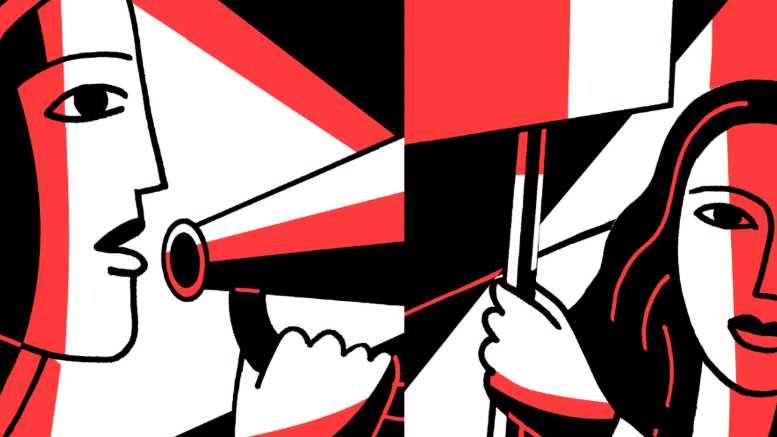Three Weinberg faculty discuss the keys to effective social movements
July 9, 2021

As protestors took to the streets across the globe in 2020, it was hard to miss their calls for racial justice and equity for all. However, three Weinberg College faculty members who have studied social movements of the past and present noted that effective social change requires a lot more than just successful protests. In the 2021 Spring issue of Northwestern Magazine, they discussed the keys to effective social movements. Read the in-depth article here.
“It’s easy to focus on the sudden, dramatic moments of activism,” said Anthropology Professor Ana Aparicio. “However, sometimes activism isn’t overt or in big public spaces.”
Aparicio studies how Latinx communities develop politics and engage around local issues. Her recent work centers around a community garden in a Long Island suburb where people gather for meetings, events, and even a radio show. By coming together in the garden, people are able to share resources and discuss issues in a region that was originally designed to exclude Black and Latinx communities.
“Claiming public space by having a Latinx festival, for example, is fun,” Aparicio said, “but there’s also another point to it. It’s not necessarily to organize for or against something. Coming together is in and of itself as critical as anything that comes out of it.”
Professor Aldon Morris, of the Department of Sociology, added that communities need spaces to gather if there is to be a sustained movement. He said that in the civil rights era, for example, activists depended on what Morris called “indigenous resources” like Black churches and Black-led organizations.
Morris has dedicated his life to social movements. He was arrested while protesting South African apartheid, and he has risked his academic career by opposing segregation in higher education and supporting labor unions across the United States.
“Movements do not arise spontaneously,” he said. “The oppressed must organize the movement, must provide it with leadership, must provide it with resources. That’s what gives power to a movement.”
Political Science Professor Chloe Thurston studies the role of social movements and organizations in shaping policy, and she said movements can spotlight individual grievances by giving them visibility and connecting them to a broader context. For instance, she said that racial and social equality movements like Black Lives Matter and #MeToo commonly connect personal experiences to policy.
Thurston said raising public awareness alone is likely not enough to effect change, “but it’s certainly part of keeping these issues on the agenda.”
But just as there are many ways to define and participate in movements, Thurston said there are many ways to define its success, role, and impact.
“Social movements are not successful because they are polite,” said Morris. “They are successful because they shake up the status quo.”
Read more about how people make a change in Northwestern Magazine.
Faculty

Joel Mokyr wins Nobel Prize in Economic Sciences
October 13, 2025
Nobel recognizes Mokyr’s theory on sustained economic growth Joel Mokyr, the Robert H. Strotz Professor of Arts and Sciences and professor of economics and history in the Weinberg College of Arts and Sciences at Northwestern University, today (Oct….

Northwestern accelerates quantum research with NVIDIA technology
September 19, 2025
NVIDIA code could help researchers tackle computationally demanding tasks hindering quantum research Northwestern University physicists are using NVIDIA technology to tackle the computationally demanding tasks hindering quantum research. Northwestern theoretical physicist Jens Koch and his research group…

Weinberg College welcomes new faculty members for 2025-2026 academic year
September 18, 2025
Shreeya Behera Assistant Professor of Instruction PhD institution: The Ohio State University Previous title and institution: Data Scientist at Pandora Bio, Inc. Home department: Statistics and Data Science Shreeya Behera is a mathematician and data…

Weinberg College faculty and graduate students recognized for excellence in teaching
July 2, 2025
Each year, the Weinberg College of Arts and Sciences and the Office of the Provost recognizes members of the College’s tenure-line and teaching-track faculty for excellence in teaching. Weinberg College in addition recognizes the contributions…



